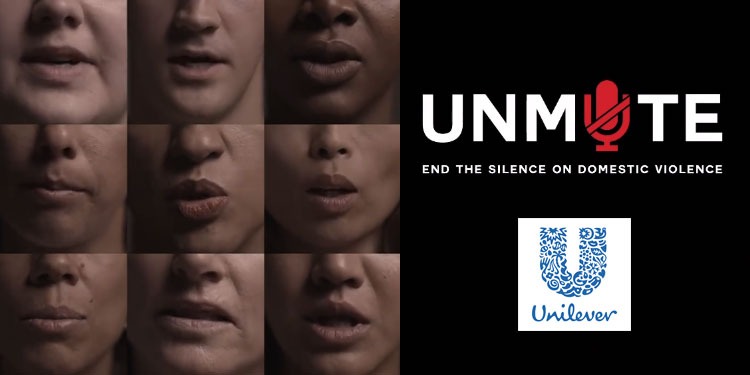As the world continues to fight Covid-19, a shadow pandemic is on the rise. According to the United Nations, cases of domestic violence during lockdown have increased by 20%.

Even before the additional strains put on individuals by Covid-19, UN figures indicate that 35% of women worldwide have experienced either physical and sexual intimate partner violence or non-partner sexual violence. On top of this, fear and stigma can mean that as many as 60% of cases go unreported.
In this context, Unilever has launched a 30-second video campaign named ‘Unmute’. “The campaign purpose is to challenge the stigma and end the silence surrounding Domestic Violence,” said Alan Jope, CEO of Unilever in a Twitter post.
Unmute has been launched ahead of #IWD2021. Its purpose is to challenge the stigma and end the silence that surrounds the hidden pandemic of domestic violence. We’re sharing @Unilever's global policy, which supports those affected, to help other companies shape their own. pic.twitter.com/4gFEltlYL7
— Alan Jope (@alanjope) March 5, 2021

“One-third of our adult lives is spent at work. This puts employers like Unilever in a unique position to create a workplace culture where people know they can access support safely and securely,” said says Aline Santos, EVP, Marketing and Chief Diversity & Inclusion Officer, Unilever, in a company statement.
She added, “We have pledged to create a safe and inclusive workplace proactively. One where employees can seek help without stigma and where staff have access to basic training to know how to respond appropriately if they feel a colleague is potentially at risk. All of this is detailed in our Global Domestic Violence and Abuse Policy, which ensures staff are provided with access to ‘safe leave’, flexible working conditions and access to counselling and support services should they ever need them.”
To this end, in a business first, on International Women’s Day, Unilever is offering businesses and organisations open access to its policy and how it supports colleagues who have experienced abuse.
“We hope that by sharing what we have learnt shaping our policy, it will help employers that do not have a policy in place and can build on what we have learnt to shape policies of their own,” Aline added.


















